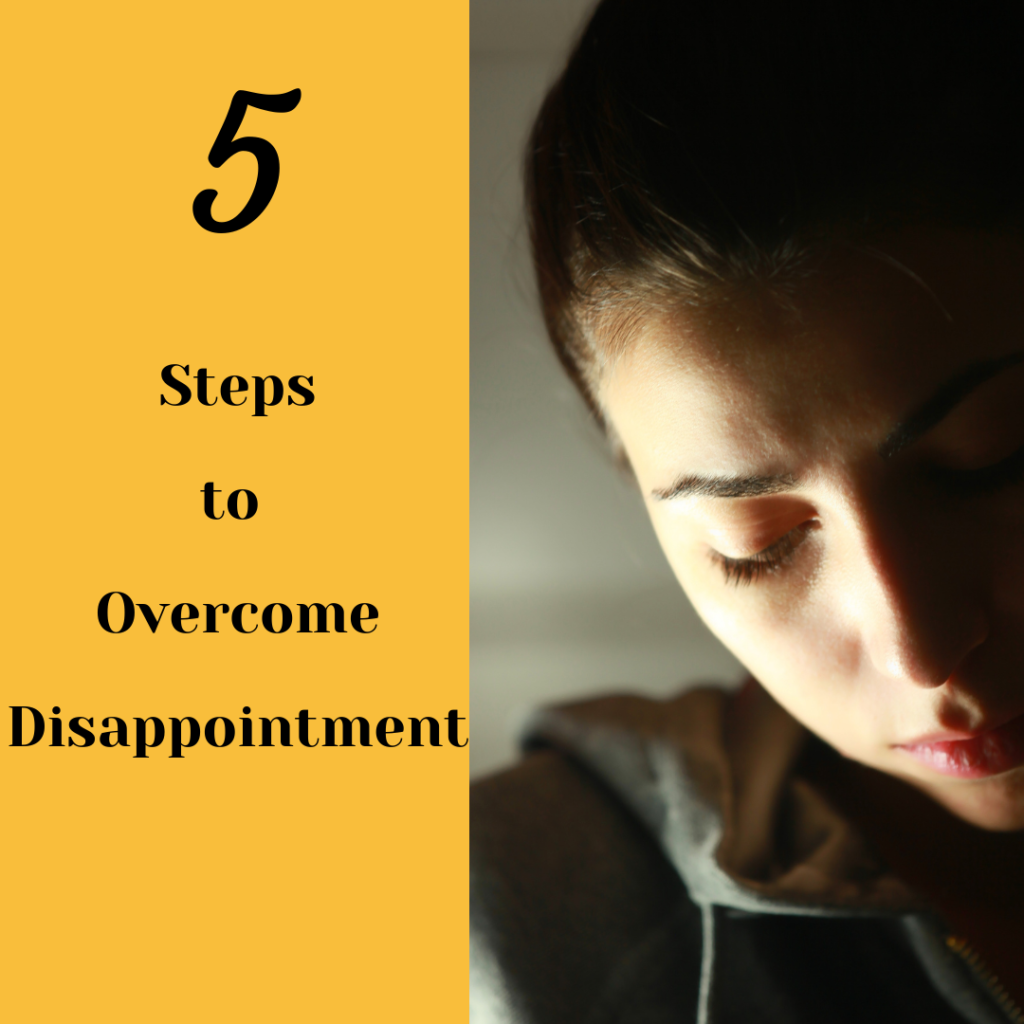“Don’t let today’s disappointments cast a shadow on tomorrow’s dreams.” ~Unknown
Disappointment is one tricky emotion to deal with. For me, disappointment is one of the most uncomfortable emotions to process, because there can be such a wide spectrum of disappointment. Sometimes disappointments are just something small or annoying, and then other times disappointments are huge and truly life changing.
Life is filled with unhappy news and disappointments. This is simply just a reality. You get passed over for that promotion. You receive a rejection letter from your dream college. You are turned down for that date. You receive a surprising medical report. These are examples of things outside of your control, but you can also become disappointed by things that are in your control. Your eating habits, your ability to forgive, or who you choose to hang out with.
Disappointment can hurt. Sometimes a bit, and sometimes a lot. Some side effects of disappointment can pull you down into a negative vibration for hours, days, and even weeks. But if you learn how to deal with disappointment in a healthier and more helpful way, it can become an easier emotion to handle and process, allowing you to use it as a lesson or towards your personal growth.
Here are some healthy and helpful steps you can take when facing disappointment, without falling apart.
5 Helpful Steps
1. Let it sink in, just for a moment.
Take a moment to acknowledge and feel your disappointment, but just a moment. Try and label how you’re feeling, as this can help you make more sense of your experience. Understand being disappointed is a human experience and must be acknowledged in order to begin processing and ultimately overcoming. Honor your emotions, to assist you in moving on.
2. No Self-Pity Party.
Self-pity always comes with a price, and the cost is high. It takes away your feelings of confidence and empowerment and makes us feel as though we don’t have control over our lives. So, yes take a moment to honor your feelings of disappointment, but do not indulge in to. If you do, it is at your own peril. Self-pity can foster negative emotions such as depression, anger, and resentment.
3. Do a reality check—is it really that bad?
Humans are many things, and this includes being dramatic at times. Some more than others have a habit of blowing disappointments way out of proportion. This is why after experiencing that disappointment, it’s very important to take a step back and do a reality check. Our feelings are always valid; however, our thoughts are not always the truth. Thinking more objectively can help you keep things in perspective and stop you from wallowing in negative emotions.
4. Don’t dwell.
The more you dwell on the disappointment, the more it will hurt and disrupt your ability to focus, heal, and move on. Every time you decide to dwell on a disappointment, it’s equivalent to re-opening up an old wound. When this happens, the same pain comes back to mind, and you begin to experience those hurtful emotions all over again. So be very careful not to feed the disappointment and deepen your emotional hurt.
5. Write it down.
One great way to help overcome disappointment is by writing down your feelings. I personally have found this to be very therapeutic and beneficial in helping overcome any negative emotions I’ve dealt with. Writing it down can help get it out of your system. Journaling will help you express your emotions in a healthy way. Think of you journal as a non-judgmental party that will listen and allow you dump everything out. Writing can release pain and can be a great way to grow and learn from disappointment.

